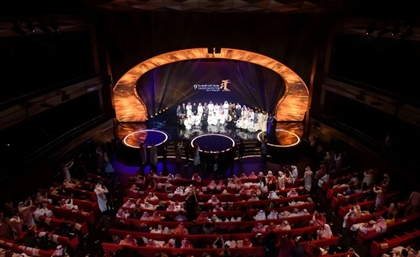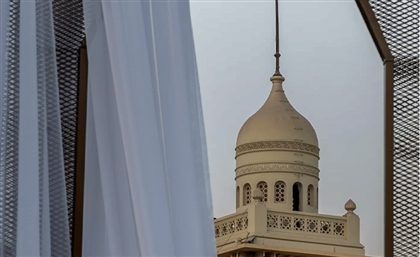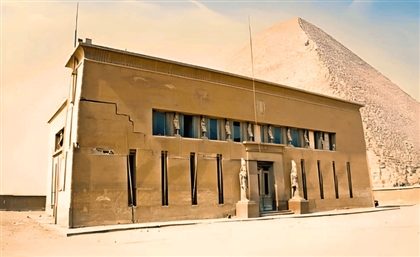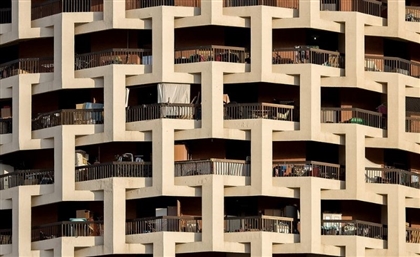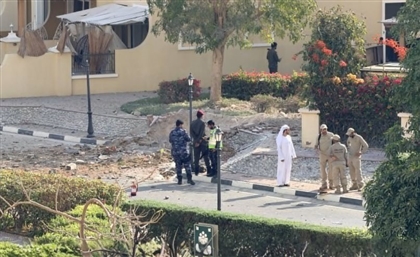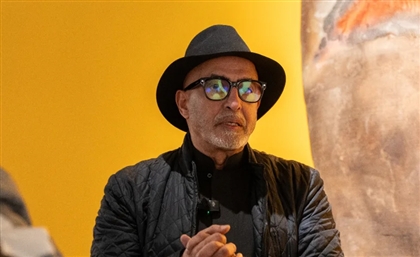WATCH: A Decade of Downtown Cairo’s Zawya Cinema
Ten years later, co-founder and managing director of Zawya Cinema, Youssef Shazli, reflects on the journey.
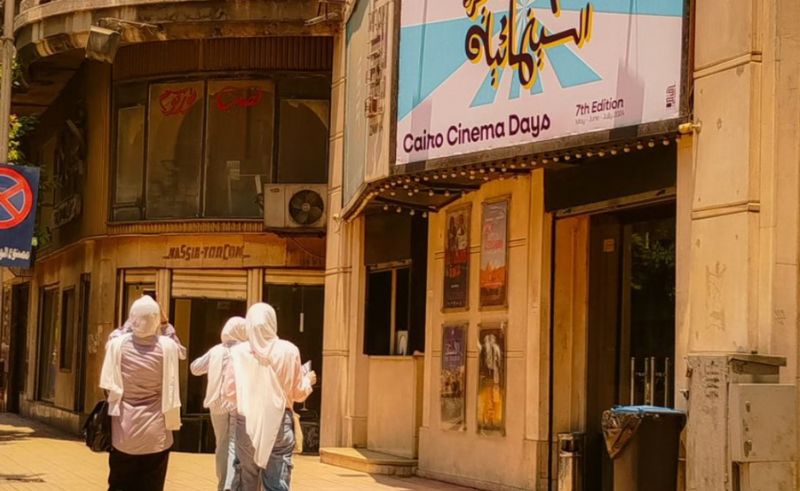
The first time I went to Zawya Cinema, I was alone. I went to watch the Egyptian documentary feature ‘Ehkeeli’ (2019), directed by Marianne Khoury. I had planned to see it with my sister, but she went without me—a common occurrence—so I went on a Saturday morning. Since then, I’ve visited alone, with friends whose films were on the big screen for the first time, for film class assignments, and, of course, on dates with pretentious/artsy men.
It’s a space where I’ve seen beautiful films. Films that made me cry and films that were a joy to know by heart and finally watch in a hall with people yearning for that collective viewing experience. I’ve also poked fun at our indie films, seen films I barely understood, and witnessed a technical malfunction that I initially assumed was an experimental film element. My mom’s recent first visit was to catch the screening of ‘The Memoirs of MA Draz’ (2024) directed by Maggie Morgan, and she didn’t understand why my sister and I wanted to hang out in front of the cinema on Emad El Din Street after the film. She stood on that pavement and jokingly told me that everyone looked the same to her.
Zawya is a space that people identify with; it has become a marker of personality, a trait, and a location that determines what kind of Cairene you are. It is “a cinema for the films that don’t make it to cinemas,” as co-founder and managing director Youssef Shazli puts it. Established in 2014, Zawya remains a cornerstone of Egypt and the Arab world’s independent cinema—however vague that term has become. It is now a genre, a label for ‘the type of film you would watch at Zawya’.
To reflect on ten years of a project many initially thought would fail, I visited Zawya and roamed its empty halls with Shazli, who shared how they persevered, including dealing with the ceiling of Karim 1 Hall collapsing at one point.
Shazli hails from a cinematic family, as the son of director and producer Marianne Khoury, who is the niece of iconic Egyptian filmmaker Youssef Chahine. When he was 23 years old, the idea of a cinema with curated programs—one away from the mainstream and deeply immersed in Egypt’s then-blossoming indie film industry—was born.
 copy-a848d49e-50f7-4fda-bbcd-4f98a9b5cb41.jpg)
Initially, Zawya Cinema was intended to be established in 6th of October City, on the outskirts of Cairo, an idea Shazli was heavily against. As Cairo’s arts and culture scene saturated Downtown Cairo at the time, he felt a need to be part of that movement. Zawya’s first home was in a rented hall inside Cinema Odeon in Downtown Cairo, with a miniature route being a corridor known only to Zawya’s loyal audience, Zawya expanded in 2018 to a new venue overlooking the main road. The film posters at the new location aimed to signal to the public that this space is accessible, not just a cultural centre or a niche indie space.
Since then, the space has been through multiple economic crises, a pandemic and an awkward manoeuvre between commercial and independent screenings, labels Shazli explains are beyond the intention of Zawya, “our tastes as a team are diverse, between independent Egyptian documentaries and Oscar-nominated films, and so are the types of films we show,” he explains.
However, in today’s cinematic landscape, Zawya has become a motivation for alternative films to be created. Upcoming Egyptian filmmakers now time their production schedules to the Zawya Shorts Film Festival deadline. To them, the festival is the only avenue for their stories, a stepping stone to their dreams, and a motivation that counters procrastination driven by a deteriorating film industry. When I spoke to Shazli about this, a shy smile took over, followed by a look of validation as he confirmed that this is exactly the aim: to build a marker for those films and to serve as a platform for filmmakers who might otherwise not have one.
-c26a3135-9721-4370-8935-ca9ba5430c70.jpg)
From their first screened film, Saudi Arabia’s Wadjda (2012) by Haifa Al Mansour, to the currently showing Cairo Cinema Days program, and the restored version of Mohamed Khan’s Fi Sha’et Masr El Gedida (2017), today’s Zawya Cinema is as diverse as ever. For many, it is a space they cannot imagine Cairo without. For Shazli, this is what keeps him going, despite his and his team’s default ‘survival mode’, which has been going strong for a decade.
When asked about Zawya’s future, Shazli expressed his hope to take the cinema’s retrospective programs and selected screenings to other venues, expanding its audience and presence even further. He is betting once again on its ability to find an audience that has always been deemed nonexistent.
- Previous Article Italian-Palestinian Duo No Input Debuts Eponymous Electro EP
- Next Article Travel Across History on Egypt's Most Iconic Bridges







.jpeg)
